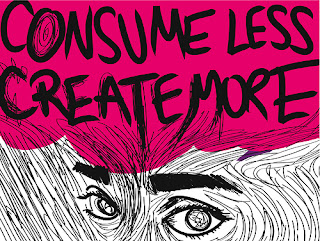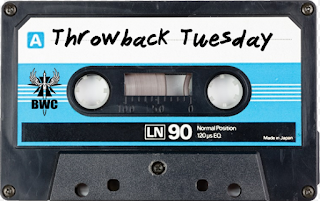You may have noticed that because of the non-existence of a coursebook during the academic year and our reliance on kinda tailored materials instead, the contents of the course may have felt a little bit unpredictable at some point, as all those materials were not available until a couple of days before actually embarking on a given topic. Yeah, I guess that's the price for trying to be on the creative side of things haha.
What I had planned, though, was to culminate the academic year with a ray of hope. There has been a pretty evident, humanistic, social, almost psychological approach underlying every single topic we have seen, from art to education, to work, to relationships and I guess some of the discussion topics, issues, etc, may have come across as rather bleak at some point. So I wanted the course's swan-song to be a more positive, constructive, life-affirming activity.
Few things feel more constructive than trying to work our way up to happiness and self-realization, right?
Here I list 10, pretty achievable in my view, steps to a life with more ease and bliss. The problem with "generic" tips such as "be yourself", "lead a healthier lifestyle" is that they are so unspecific that they end up becoming unrealizable.
Without further ado:
1. Take a break from the social media
This is coming from someone who's absolutely hooked on Whatsapp and checks Facebook like twenty-seven times a day. For no particular reason. Just out of boredom, curiosity, gossiping, maybe vanity... Screw that, for once. I have come to the conclusion that the more one spends on the social media, the less satisfied they feel with their free time or with their time in general. And I know there's tons of useful information there, but we should learn to be more efficient with handling the information online. Grab something you like about the topic/hobby you are interested in, and just do something with it! Do not just fall into the trap of "paralysis by analysis"
2. Get rid of unwanted stuff: give them away, throw them away.
This is pretty self-explanatory, yet we fail to do it again and again. But, boy, does it feel good to make room for the useful stuff at home or just make room, period!
3. Create more, consume less
ABSOLUTELY. I'm pretty sure some are gifted with the ability to customize clothes they already have and reinvent their closet, so what is the point of splashing out your hard-earned money on the umpteenth dress, jacket when you have enough gear? The same goes for eating out, which is great, for sure. Why not trying from time to time to make some great, delicious meals and treat yourselves and impress others with memorable dinners and make restaurant visits a more occasional thing? Or write, or play music, or paint. Just create!
4. Spend quality time with people you care for
I stress here the QUALITY component. So let's cut down on the cell phone gazing, right? Drop it for a while in a place where it is just out of reach and then, laugh with, share stories with, compliment family, friends, pets and loved ones. And LISTEN to what they have to say, for God's sake!
5. Exercise or, rather, MOVE.
"Exercise is not a punishment for what you eat, but a celebration of what your body can do"
God, do I love that line. And so do you, don't you? Yes, you do
This is quite simple. Even if you're not naturally drawn to the idea of getting a gym membership and dealing with that rather frothy environment and atrocious music gyms usually have. Right, I'm with you there. But just try to have a more active lifestyle: walk, cycle, take the stairs, get a pet (it will force you to be more active), dance, jump in bliss, heck... if you feel like smashing some push ups or bodyweight squats, don't hold yourself back... just MOVE!
God, do I love that line. And so do you, don't you? Yes, you do
This is quite simple. Even if you're not naturally drawn to the idea of getting a gym membership and dealing with that rather frothy environment and atrocious music gyms usually have. Right, I'm with you there. But just try to have a more active lifestyle: walk, cycle, take the stairs, get a pet (it will force you to be more active), dance, jump in bliss, heck... if you feel like smashing some push ups or bodyweight squats, don't hold yourself back... just MOVE!
6. Don't give in to anger (or negative emotions for that matter)
This does not mean being a perpetual wimp and remain cold and unaffected by all kinds of life events which may not be funny. But reveling in anger does not go anywhere. Believe me, I know what I'm talking about. Try to handle any of the arguments, disputes or everyday minutiae with less anger. But...
7. ... Embrace discomfort if necessary
If succumbing to one's fury is rarely going to work in solving one's personal problems, shying away from pain or sadness won't do the job, either. Pain is an essential part of our lives, and a source of reflection, learning, and change. Maybe the greatest life-changing decisions emanate from the hardship, from breakups, from pain. If one is constantly pleased with their life, why change? But when discomfort hits hard, just do not avoid it and rather take your life to another level.
8. Yet don't be afraid to deliver justice
It feels great when confronting an unjust situation, you do something about it. This does not mean being a belligerent, rude prick, but putting certain people in their place if need be. You can act "locally" (with inconsiderate bosses, neighbors, partners, colleagues, asshole buddies, etc) or "globally", denouncing abuse from the big powers and greedy ones.
9. Listen to your favorite music, preferably in the morning
I read somewhere about the importance of morning rituals, and the powerful effect they have on setting the tone for the rest of the day. I have noticed that for me personally, listening to those songs that I sometimes hum in my head when I walk my dog first thing in the morning puts me in a terrific mood! I'm pretty sure it will have the same effect on you!
10. Focus not so much on the end result and enjoy the RIDE
I said it before, and I'll say it again: knowing that there will always be opportunities for learning new things is amazing. Fight for your goals, be so good they can't ignore you and unleash the best version of you, but make sure you enjoy the journey
;-)




















